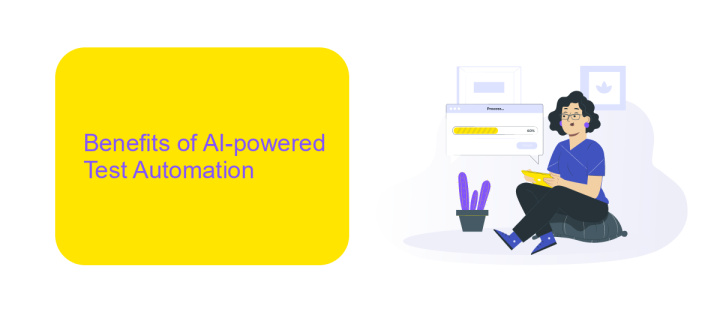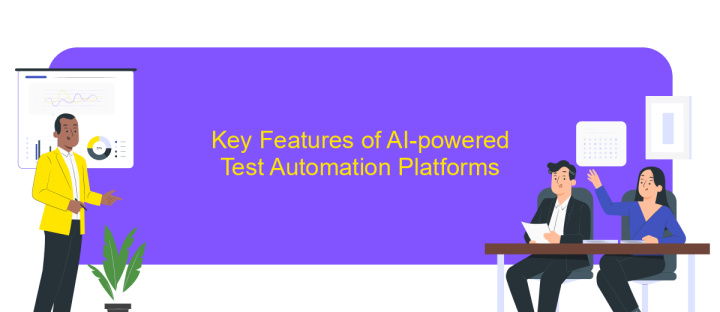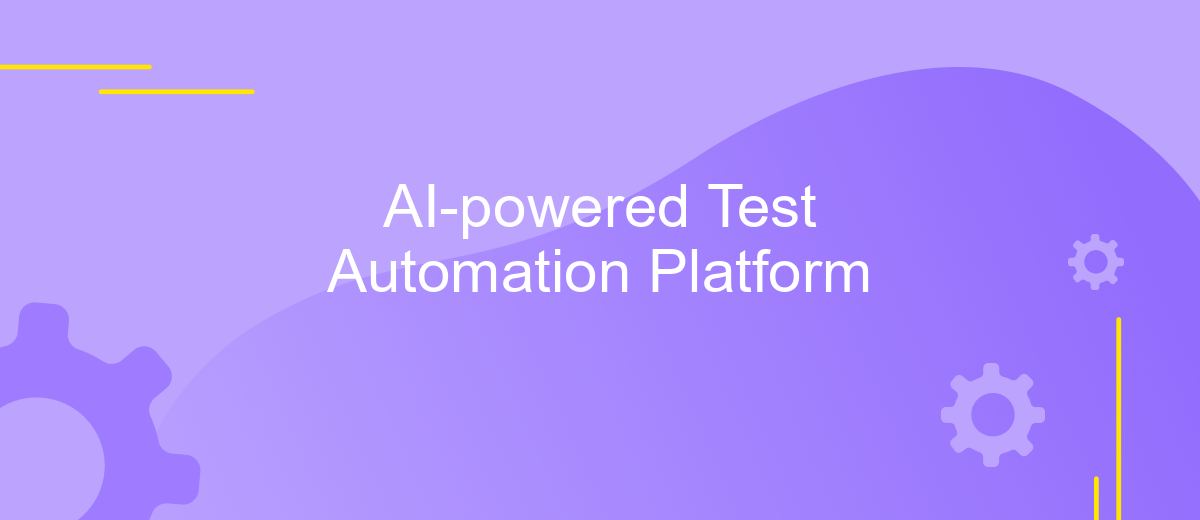AI-powered Test Automation Platform
In the rapidly evolving landscape of software development, AI-powered test automation platforms are revolutionizing the way teams ensure quality and efficiency. By leveraging advanced machine learning algorithms, these platforms can intelligently design, execute, and analyze test cases, significantly reducing manual efforts and accelerating release cycles. This article explores the transformative impact of AI in test automation, highlighting key benefits and innovative features that are shaping the future of software testing.
Introduction
In the rapidly evolving landscape of software development, the demand for efficient and reliable testing processes has never been greater. Traditional testing methods, while effective, often fall short in terms of speed and scalability. This is where AI-powered test automation platforms come into play, revolutionizing the way testing is conducted by leveraging artificial intelligence to enhance accuracy and efficiency.
- AI-driven test automation reduces manual intervention, allowing for faster execution of test cases.
- These platforms can adapt to changes in the application, minimizing maintenance efforts.
- They provide predictive analytics to foresee potential issues, improving overall software quality.
- Integration with CI/CD pipelines ensures seamless deployment and continuous testing.
By harnessing the power of AI, organizations can achieve higher test coverage and significantly reduce time-to-market. The ability to quickly identify and rectify defects not only increases the reliability of software products but also enhances customer satisfaction. As AI technology continues to advance, its integration into test automation promises to set new benchmarks in software quality assurance, making it an indispensable tool for modern development teams.
Benefits of AI-powered Test Automation

AI-powered test automation platforms significantly enhance the software testing process by increasing efficiency and accuracy. These platforms leverage advanced machine learning algorithms to quickly identify bugs and optimize test cases, thereby reducing the time and effort required for manual testing. The ability to run multiple tests simultaneously allows development teams to accelerate release cycles and improve product quality. Furthermore, AI-driven analytics provide insights into test coverage and performance, enabling teams to make data-driven decisions and prioritize testing efforts effectively.
Another key benefit is the seamless integration capabilities of AI-powered test automation tools with various development and testing environments. Services like ApiX-Drive facilitate these integrations, allowing teams to connect their test automation platforms with other applications effortlessly. This integration capability ensures that testing processes are streamlined across different tools and platforms, enhancing collaboration and communication within development teams. As a result, organizations can achieve faster time-to-market and maintain a competitive edge in the rapidly evolving software landscape.
Key Features of AI-powered Test Automation Platforms

AI-powered test automation platforms have revolutionized the software testing landscape by offering advanced capabilities that enhance efficiency and accuracy. These platforms leverage artificial intelligence to automate complex testing processes, reducing human intervention and minimizing errors. By integrating AI, these solutions provide intelligent insights and predictive analytics, enabling teams to make data-driven decisions and improve software quality.
- Smart Test Generation: AI algorithms automatically generate test cases based on application behavior, ensuring comprehensive coverage and reducing manual effort.
- Adaptive Learning: The platform continuously learns from test execution data, adapting to changes in the application and optimizing test strategies over time.
- Anomaly Detection: AI-powered analytics identify anomalies and potential issues early in the development cycle, allowing for quicker resolution and improved reliability.
- Natural Language Processing: Enables easy test script creation and execution using natural language commands, making it accessible to non-technical users.
- Seamless Integration: These platforms integrate with various development tools and CI/CD pipelines, ensuring a smooth workflow and faster release cycles.
By incorporating these key features, AI-powered test automation platforms significantly enhance the testing process, making it more efficient, scalable, and reliable. As a result, organizations can deliver high-quality software products faster, meeting the ever-increasing demands of the digital world.
Implementation and Use Cases

The integration of AI-powered test automation platforms into software development processes has revolutionized how teams approach testing. By leveraging machine learning algorithms, these platforms can automatically generate, execute, and maintain test cases, significantly reducing the time and effort required for manual testing. This results in faster release cycles and improved software quality.
Implementation begins with selecting a platform that aligns with your development environment and testing requirements. After integration, the platform continuously learns from test data, adapting to changes in the codebase. This ensures that test cases remain relevant and effective, even as the software evolves.
- Regression testing: Automatically re-run tests to ensure new changes don't affect existing functionality.
- Performance testing: Identify bottlenecks by simulating user loads and analyzing response times.
- Functional testing: Validate that each feature operates according to specifications.
- Security testing: Detect vulnerabilities by simulating potential attack vectors.
Real-world applications of AI-powered test automation span various industries, including finance, healthcare, and e-commerce. By automating repetitive testing tasks, organizations can focus on innovation and strategic planning, ultimately delivering more robust and reliable software solutions to their users.
Future Trends and Outlook
The future of AI-powered test automation platforms is poised for transformative growth, driven by advancements in machine learning and natural language processing. As these technologies evolve, they will enable more sophisticated test case generation and execution, reducing the need for manual intervention and allowing for more dynamic testing environments. This shift will lead to faster release cycles and higher software quality, as AI systems become more adept at predicting potential failures and optimizing test strategies in real-time.
Moreover, the integration capabilities of AI-powered platforms will expand, allowing seamless connectivity with various development and deployment tools. Services like ApiX-Drive are set to play a crucial role in this evolution by simplifying the integration process, enabling teams to effortlessly connect their test automation platforms with other essential software solutions. This increased interoperability will facilitate more comprehensive and continuous testing workflows, ultimately supporting the agile and DevOps methodologies that are becoming the standard in software development. As a result, organizations will be better equipped to meet the demands of an ever-evolving digital landscape.
FAQ
What is an AI-powered test automation platform?
How does AI improve test automation?
Can AI-powered test automation platforms integrate with other tools?
What types of applications can benefit from AI-powered test automation?
How does AI handle test maintenance in automated testing?
Do you want to achieve your goals in business, career and life faster and better? Do it with ApiX-Drive – a tool that will remove a significant part of the routine from workflows and free up additional time to achieve your goals. Test the capabilities of Apix-Drive for free – see for yourself the effectiveness of the tool.

